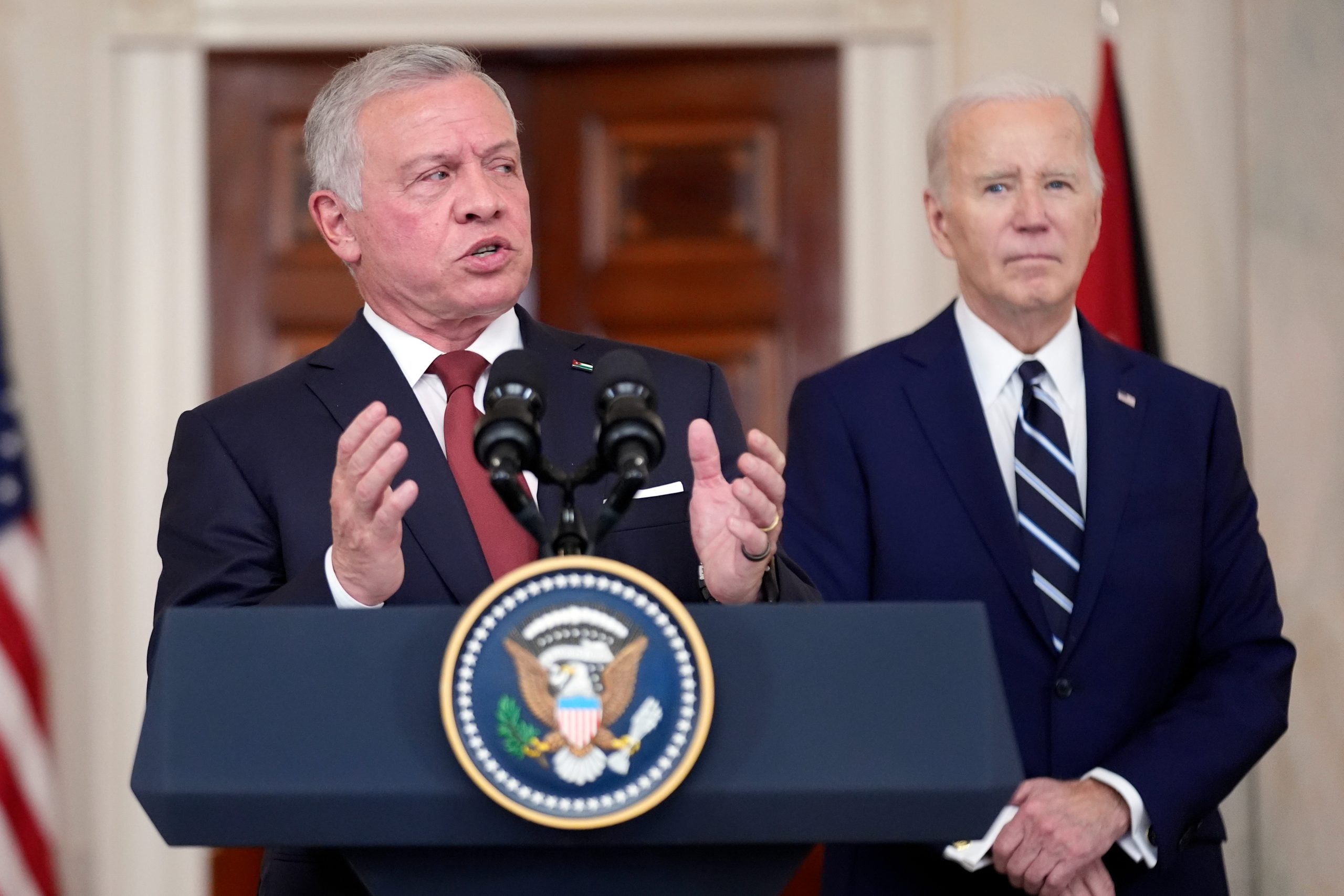President Joe Biden and King Abdullah II of Jordan convened on Monday with the aim of finding a path to transition the Israel-Hamas conflict into a new phase. Their focus was on securing the release of Israeli hostages and achieving a prolonged period of cessation of hostilities.
Biden, addressing reporters alongside King Abdullah at the White House, stated, “The key elements of the deal are on the table,” acknowledging existing gaps but expressing encouragement for Israeli leaders to continue working towards an agreement.
He emphasized the United States’ commitment to doing everything possible to facilitate the deal. However, Biden did not elaborate on the specific gaps in the deal, underscoring the importance of a credible plan to protect civilians before any planned Israeli operation in Rafah.

Highlighting the humanitarian impact of the conflict, Biden expressed concern for the displaced population in Rafah, emphasizing the need for their protection.
The leaders discussed a potential hostage deal between Israel and Hamas, aiming to bring immediate and sustained calm to Gaza for at least six weeks, with the intention to build a more enduring solution.
King Abdullah, the first Arab leader to visit the White House since Hamas’ attack on Israel on October 7, went further, reiterating his call for a complete ceasefire, which Biden has resisted thus far.
The Jordanian king emphasized the urgency of a lasting ceasefire and stressed the importance of continued funding for the United Nations Relief and Works Agency for Palestine Refugees in the Near East (UNRWA), responsible for Gaza.
Expressing concern over a potential ground operation in Rafah, King Abdullah warned of devastation and the likelihood of another humanitarian catastrophe.
Despite referring to Biden as a “dear friend” and acknowledging the president’s leadership in addressing the conflict, differences between Biden and Abdullah underscored the delicate diplomatic balance amid the ongoing Gaza conflict.
The meeting addressed pressing issues, including Jordan’s call for increased pressure on Israel over its campaign against Hamas, the cancellation of a planned four-way summit, and recent retaliatory strikes following an attack in Jordan.
The primary focus remained on achieving a cessation of fighting and securing the release of hostages, with ongoing discussions between Biden and Israeli Prime Minister Benjamin Netanyahu. While progress has been made, caution was advised as gaps in the framework still exist.
Efforts by the U.S. to influence Israel towards a “humanitarian pause” faced challenges, with Netanyahu dismissing recent Hamas proposals.
Negotiations towards an agreement continue, and the Hamas response outlines three phases for a ceasefire, including the withdrawal of Israeli troops, a humanitarian effort, and freedom of movement throughout Gaza.


